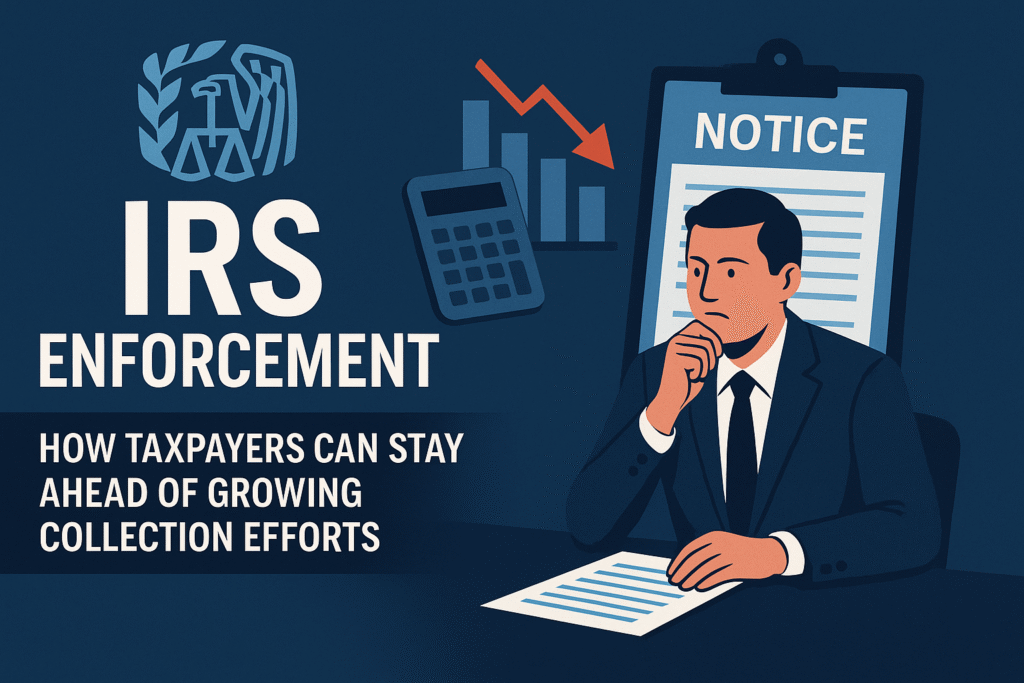The IRS has entered 2025 with renewed momentum, armed with expanded resources and a growing mandate to crack down on unpaid taxes. With enforcement ramping up across the country, taxpayers—especially those with existing liabilities or unresolved filings—are facing heightened risks and shorter response windows.
Why IRS Collections Are Intensifying in 2025
Following years of budget increases and a commitment to modernization, the IRS has significantly scaled up its collection operations. New analytics tools and a larger enforcement workforce have allowed the agency to pinpoint high-risk cases faster than ever. In 2025, the focus is clear: recover unpaid taxes, close the tax gap, and ensure compliance across all income brackets.
This means more audit notices, increased wage garnishment activity, and the accelerated use of liens and levies. Those who previously deferred payment due to pandemic-era relief or economic hardship may now find themselves in the crosshairs.
Common Triggers for IRS Action
Certain taxpayer behaviors continue to draw attention from IRS enforcement systems. These include:
- Unfiled or late tax returns
- Substantial discrepancies between reported income and third-party reporting
- Self-employment or gig income without proper documentation
- Excessive or questionable deductions
Failure to address these issues quickly can lead to penalties, interest accumulation, or worse—enforced collection actions. Legal guidance from a Raleigh tax lawyer can make a significant difference for individuals and businesses navigating these complex challenges.
Understanding Your Resolution Options
Despite the IRS’s increased scrutiny, resolution programs remain available in 2025. These include:
- Installment Agreements: Monthly payment plans designed to help taxpayers resolve balances over time.
- Offer in Compromise: A settlement program for taxpayers who cannot pay their full liability and meet strict eligibility criteria.
- Currently Not Collectible Status: A temporary reprieve for those experiencing financial hardship, halting collections while circumstances improve.
Professional assistance can help determine which route is most appropriate based on a taxpayer’s unique financial situation. Taxpayers facing liens or other aggressive collection actions may benefit from targeted tax lien help to mitigate long-term damage.
Proactive Defense for IRS Audits
The IRS has also expanded its audit coverage, especially in areas involving high-income earners, small businesses, and cryptocurrency holdings. With automated audit selection becoming more common, taxpayers must maintain detailed records and be prepared to respond quickly to information requests.
When audits do arise, proper legal representation can reduce stress and ensure compliance while protecting the taxpayer’s rights. Resources like IRS audit defense representation offer tailored strategies for navigating complex audits with minimal disruption.
Final Thoughts
As the IRS doubles down on enforcement in 2025, taxpayers must stay informed and proactive. Ignoring notices or delaying resolution can lead to severe consequences. With the right knowledge and support, individuals and businesses can manage their obligations effectively—and avoid unnecessary financial fallout.







